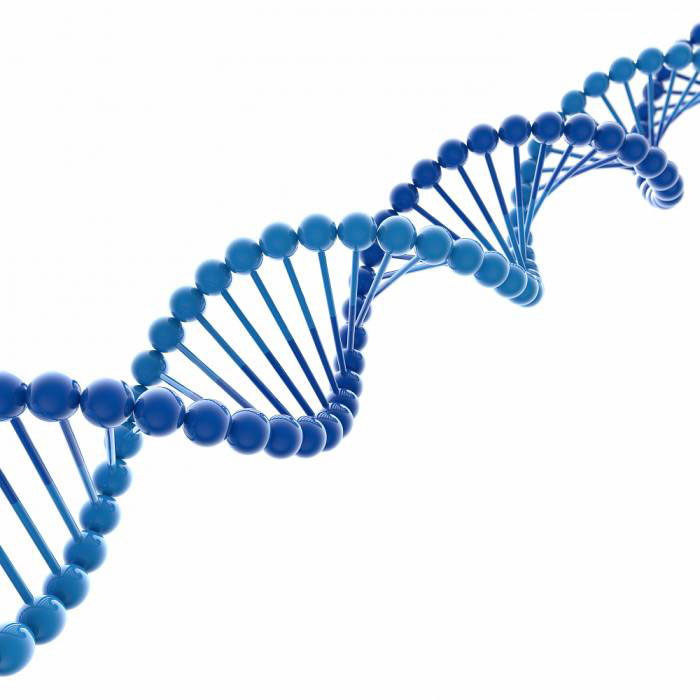
A new Tel Aviv University study pinpoints the inverse correlation between a known oncogene — a gene that promotes the development of cancer — and the expression of an oncosuppressor microRNA as the reason for extended pancreatic cancer survival. The study may serve as a basis for the development of an effective cocktail of drugs for this deadly disease and other cancers.
The study, which was published in Nature Communications, was led by Prof. Ronit Satchi-Fainaro, Chair of the Department of Physiology and Pharmacology at TAU’s Sackler Faculty of Medicine, and conducted by Hadas Gibori and Dr. Shay Eliyahu, both of Prof. Satchi-Fainaro’s multidisciplinary laboratory, in collaboration with Prof. Eytan Ruppin of TAU’s Computer Science Department and the University of Maryland and Prof. Iris Barshack and Dr. Talia Golan of Chaim Sheba Medical Center, Tel Hashomer.
Pancreatic cancer is among the most aggressive cancers known today. The overwhelming majority of pancreatic cancer patients die within just a year of diagnosis. “Despite all the treatments afforded by modern medicine, some 75% of all pancreatic cancer patients die within 12 months of diagnosis, including many who die within just a few months,” Prof. Satchi-Fainaro says.
“But around seven percent of those diagnosed will survive more than five years. We sought to examine what distinguishes the survivors from the rest of the patients,” Prof. Satchi-Fainaro continues. “We thought that if we could understand how some people live several years with this most aggressive disease, we might be able to develop a new therapeutic strategy.”
Calling a nano-taxi
The research team examined pancreatic cancer cells and discovered an inverse correlation between the signatures of miR-34a, a tumor suppressant, and PLK1, a known oncogene. The levels of miR-34a were low in pancreatic cancer mouse models, while the levels of the oncogene were high. This correlation made sense for such an aggressive cancer. But the team needed to see if the same was true in humans.
The scientists performed RNA profiling and analysis of samples taken from pancreatic cancer patients. The molecular profiling revealed the same genomic pattern found earlier in mouse models of pancreatic cancer.
The scientists then devised a novel nanoparticle that selectively delivers genetic material to a tumor and prevents side effects in surrounding healthy tissues.
“We designed a nanocarrier to deliver two passengers: (1) miR-34a, which degrades hundreds of oncogenes; and (2) a PLK1 small interfering RNA (siRNA), that silences a single gene,” Prof. Satchi-Fainaro says. “These were delivered directly to the tumor site to change the molecular signature of the cancer cells, rendering the tumor dormant or eradicating it altogether.
“The nanoparticle is like a taxi carrying two important passengers,” Prof. Satchi-Fainaro continues. “Many oncology protocols are cocktails, but the drugs usually do not reach the tumor at the same time. But our ‘taxi’ kept the ‘passengers’ — and the rest of the body — safe the whole way, targeting only the tumor tissue. Once it ‘parked,’ an enzyme present in pancreatic cancer caused the carrier to biodegrade, allowing the therapeutic cargo to be released at the correct address — the tumor cells.”
Improving the odds
To validate their findings, the scientists injected the novel nanoparticles into pancreatic tumor-bearing mice and observed that by balancing these two targets — bringing them to a normal level by increasing their expression or blocking the gene responsible for their expression — they significantly prolonged the survival of the mice.
“This treatment takes into account the entire genomic pattern, and shows that affecting a single gene is not enough for the treatment of pancreatic cancer or any cancer type in general,” according to Prof. Satchi-Fainaro.
Reference: “Amphiphilic nanocarrier-induced modulation of PLK1 and miR-34a leads to improved therapeutic response in pancreatic cancer” by Hadas Gibori, Shay Eliyahu, Adva Krivitsky, Dikla Ben-Shushan, Yana Epshtein, Galia Tiram, Rachel Blau, Paula Ofek, Joo Sang Lee, Eytan Ruppin, Limor Landsman, Iris Barshack, Talia Golan, Emmanuelle Merquiol, Galia Blum and Ronit Satchi-Fainaro, 2 January 2018, Nature Communications.
DOI: 10.1038/s41467-017-02283-9
Never miss a breakthrough: Join the SciTechDaily newsletter.